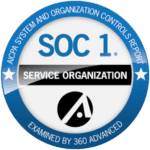Appendix:
- Introduction
- What is Supply Chain Management?
- Key Benefits of Effective Supply Chain Management
- The Role of Technology in Supply Chain Management
- Supply Chain Management Challenges
- Conclusion
Introduction
In today’s globalized economy, the importance of supply chain management cannot be overstated. Effective supply chain management (SCM) is crucial to ensuring that businesses operate efficiently and that products move seamlessly from production to the customer. In this blog, we’ll explore the benefits of SCM, the role of technology, and the challenges that businesses may face.
What is Supply Chain Management?
Supply chain management refers to the coordinated management of activities involved in the production, transportation, and distribution of goods. It includes everything from sourcing raw materials, manufacturing, warehousing, and delivering products to the end consumer.
Key Components of SCM:
- Sourcing and Procurement: Identifying and purchasing raw materials.
- Production: Converting raw materials into finished products.
- Warehousing: Storing products before they are shipped.
- Transportation and Logistics: Ensuring timely delivery of goods.
- Return Management: Handling returns and customer complaints.
Key Benefits of Effective Supply Chain Management
Properly managing the supply chain offers a variety of benefits that impact a business’s overall performance and customer satisfaction. Here are some of the most important benefits:
1. Cost Reduction
One of the main reasons businesses prioritize supply chain management is the potential for cost savings. Optimizing inventory levels, improving transportation routes, and negotiating better supplier contracts can help reduce operational costs.
2. Improved Customer Satisfaction
A well-managed supply chain ensures that products are delivered on time and in good condition, improving the overall customer experience. Consistent delivery performance can lead to higher customer retention and brand loyalty.
3. Better Risk Management
SCM helps businesses identify and mitigate risks, whether it’s a shortage of raw materials, transportation delays, or quality control issues. By planning for potential disruptions, companies can respond faster and reduce the negative impact on their operations.
4. Enhanced Collaboration with Suppliers
Effective supply chain management promotes closer collaboration between businesses and their suppliers. This can result in better communication, faster problem resolution, and more innovative product development.
5. Increased Efficiency and Productivity
By automating manual processes and using data analytics, companies can streamline operations and improve overall productivity. This allows for better inventory management, faster delivery times, and improved profitability.
| Benefit | Description |
|---|---|
| Cost Reduction | Lowering operational costs through optimized processes |
| Improved Customer Satisfaction | Ensuring timely delivery and quality control for a better customer experience |
| Better Risk Management | Identifying and mitigating potential risks throughout the supply chain |
| Enhanced Supplier Collaboration | Stronger partnerships and faster communication with suppliers |
| Increased Efficiency | Streamlined operations leading to higher productivity and profitability |
The Role of Technology in Supply Chain Management
Technology plays a critical role in modern SCM, enabling companies to track, analyze, and optimize their supply chain activities.
1. Transportation Management Systems (TMS)
A transportation management solution is essential for optimizing routes, reducing fuel costs, and managing carrier relationships. TMS platforms allow companies to monitor shipments in real-time and adjust logistics plans as needed.
2. Warehouse Management Systems (WMS)
WMS solutions help businesses manage inventory levels, track stock in real-time, and automate order fulfillment processes. This technology ensures that stock is efficiently stored and dispatched without delays.
3. Data Analytics
Advanced data analytics provide insights into supply chain performance, helping managers identify inefficiencies and areas for improvement. Predictive analytics can also be used to forecast demand and adjust supply chain strategies accordingly.
4. Blockchain Technology
Blockchain is increasingly being adopted in SCM for greater transparency and security. By recording every transaction and movement of goods in a decentralized ledger, companies can ensure that their supply chain is tamper-proof and trustworthy.
Supply Chain Management Challenges
Despite the benefits, businesses must overcome several challenges to achieve effective SCM:
1. Supply Chain Disruptions
Disruptions such as natural disasters, political instability, or pandemics can severely affect the supply chain. These events can lead to shortages, delivery delays, and increased costs.
2. Rising Costs
Fluctuating fuel prices, increased labor costs, and higher tariffs can drive up supply chain expenses. Companies need to find innovative ways to reduce costs without compromising quality or customer satisfaction.
3. Lack of Visibility
Gaining real-time visibility into every stage of the supply chain is essential for efficient management. However, companies often struggle to integrate data from different sources, making it difficult to get a comprehensive view of supply chain activities.
4. Sustainability Pressure
As consumer awareness of sustainability grows, businesses are increasingly expected to adopt eco-friendly practices. This adds additional complexity to the supply chain as companies seek to reduce waste and lower their carbon footprint.
Conclusion
The importance of supply chain management lies in its ability to reduce costs, improve efficiency, and enhance customer satisfaction. As businesses face more complex challenges and increasing consumer demands, effective supply chain management is essential for maintaining competitiveness in the global market. By leveraging modern technologies and addressing key challenges, companies can create resilient and responsive supply chains that drive long-term success.
To learn more about transportation management solutions that can enhance your supply chain, reach out to experts who can provide tailored solutions for your business needs.




